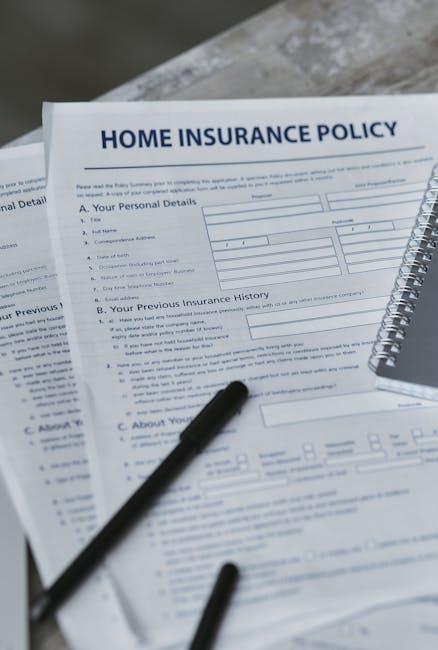In the complex landscape of insurance, policyholders often find themselves weighing the benefits and potential drawbacks of filing a claim. One of the most pressing concerns is whether initiating a claim will lead to an increase in their insurance premiums. Understanding this dynamic is crucial for making informed decisions that safeguard both your immediate needs and long-term financial health. This article delves into the intricate relationship between filing an insurance claim and the subsequent impact on your premiums. By examining industry practices, statistical data, and expert insights, we aim to provide a comprehensive guide that empowers you to navigate your insurance policy with confidence and clarity. Whether you’re dealing with auto, home, or health insurance, understanding these nuances will equip you with the knowledge needed to make strategic decisions that align with your financial goals.
Understanding the Impact of Claims on Your Insurance Premium
When it comes to insurance, the relationship between filing a claim and your premium can be complex. Insurance companies assess risk to determine premium costs, and filing a claim may indicate a higher risk profile. This doesn’t automatically mean your premium will skyrocket, but several factors can influence the outcome. Here’s what you should consider:
- Frequency of Claims: Regularly filing claims, even for minor incidents, may signal to your insurer that you’re a higher risk, potentially leading to increased premiums.
- Type of Claim: Certain claims, such as those related to liability or at-fault accidents, may have a more significant impact on your premium compared to others, like comprehensive claims for natural events.
- Claim Amount: Large claims may result in a more noticeable impact on your premium, as insurers may adjust their rates based on the payout.
- Policy Terms: Some policies offer “accident forgiveness,” which can prevent a premium increase after a first-time claim. It’s essential to understand your policy’s specific terms.
Ultimately, the decision to file a claim should be weighed carefully. Consider the potential premium increase against the claim amount and your ability to cover the cost out-of-pocket. Engaging with your insurance provider to understand how a claim may affect your premium can provide clarity and assist in making an informed decision.
Factors That Influence Premium Increases After a Claim
When you file an insurance claim, several factors come into play that can lead to an increase in your premium. Insurers assess the risk associated with your policy, and a claim can be an indicator of heightened risk. Severity and frequency of claims are primary considerations. A single, minor claim might not have a significant impact, but multiple claims or a major incident can trigger a noticeable premium hike.
- Type of Claim: Different claims carry different weight. For instance, a claim for a small repair may not affect your premium as much as a liability claim.
- Your Claims History: Insurers look at your overall claims history. Frequent claims, even if they are small, can suggest higher risk.
- Fault: If you are found at fault in an accident, this can result in a more substantial increase than if you were not at fault.
- Insurance Policy Terms: Some policies offer accident forgiveness, which might shield you from an increase after your first claim.
- Market Conditions: Broader insurance market trends and economic factors can also influence rate adjustments post-claim.

Strategies to Minimize Premium Hikes Following a Claim
When faced with the aftermath of an incident, filing a claim may seem like the only logical step. However, it’s crucial to adopt smart strategies to avoid unnecessary premium hikes. Consider increasing your deductible: A higher deductible often results in a lower premium. This approach can be particularly beneficial if you rarely file claims, as the savings on premiums can offset the cost of a higher deductible in the long run.
- Bundle your policies: Combining home, auto, and other insurances with the same provider can lead to significant discounts.
- Maintain a good credit score: Insurers often use credit scores as a factor in setting premiums, so keeping yours in check can help.
- Implement safety measures: Installing security systems, smoke detectors, or even upgrading your car with advanced safety features can lead to reduced rates.
- Review your policy regularly: Ensure your coverage is appropriate for your current situation, and not overly comprehensive, to avoid paying for unnecessary coverage.
By employing these strategies, you can minimize the impact of filing a claim on your insurance premiums, keeping your costs manageable without sacrificing coverage.

Expert Recommendations for Managing Your Insurance Costs
In the labyrinth of insurance management, understanding how to effectively manage your insurance costs is crucial. Here are some expert recommendations to help you navigate this complex landscape:
- Bundle Policies: Combining multiple policies, such as home and auto insurance, with the same provider often results in significant discounts.
- Increase Your Deductible: Opting for a higher deductible can lower your premium. However, ensure you have enough savings to cover this amount in case of a claim.
- Maintain a Clean Record: A history free of claims or accidents can qualify you for lower premiums and special discounts.
- Shop Around Annually: Regularly comparing insurance rates from different providers ensures you’re getting the best deal available.
- Leverage Loyalty Discounts: Long-term customers often benefit from loyalty discounts. Don’t hesitate to ask your insurer about these savings.
By implementing these strategies, you can effectively manage your insurance expenses while ensuring adequate coverage for your needs.

